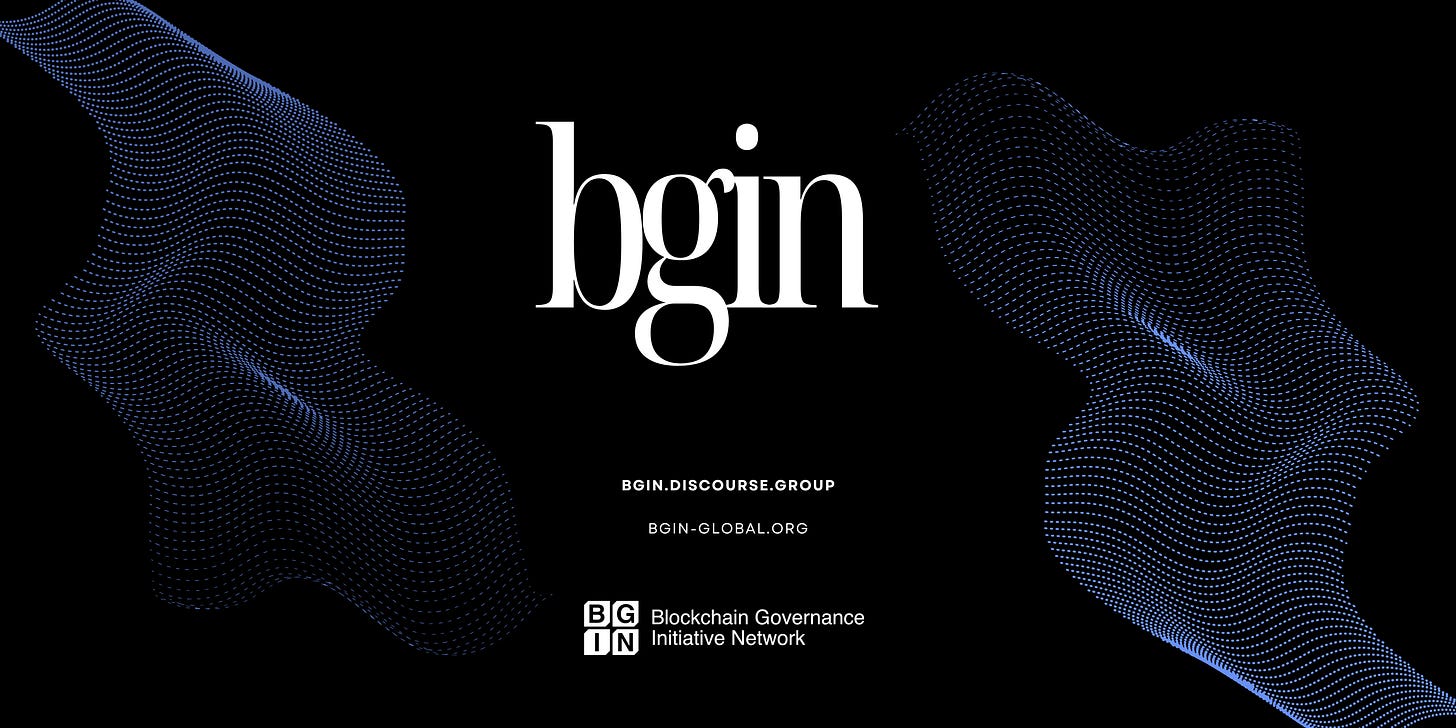Building for the Inevitable. Security and Incident Response
BGIN Block 10 Insights
In Tokyo, 2024, the Blockchain Governance Initiative Network had its 10th meeting.
These insights are condensed to share as a sync with the greater community.
Join the forum conversation by the bgin.discourse.group.
Our working groups meet online, every two weeks, and discuss the most pressing subjects relating to;
Identity Key Management and Privacy (IKP) Working Group
Financial Applications & Social Economics (FASE) Working Group.
In the rapidly evolving landscape of blockchain and decentralized finance (DeFi), the recent workshop on enhancing blockchain security and improving incident response has emerged as a critical milestone. As we delve into the insights and recommendations from this pivotal event, it becomes clear that the path forward demands not only technological innovation but also a profound shift in culture and collaboration within the blockchain community.
The Enduring Challenge of Security
Despite the cutting-edge advancements in blockchain technology, certain vulnerabilities persist as Achilles' heels for the industry. Key management and the human factor continue to be significant threats that undermine the integrity and trust in blockchain systems. The discussion highlighted that while technology has progressed, the basic principles of security, such as robust key management practices, remain fundamental challenges that the industry must address with urgency.
The Role of Regulatory Frameworks
One of the workshop's most animated debates centered on the impact of regulatory frameworks on security standards. Through various examples, it was evident that governmental interventions, when thoughtfully executed, have the potential to significantly reduce security incidents by establishing clear security baselines. This realization sparked a broader conversation about the balance between innovation and regulation, emphasizing the need for a collaborative approach to developing frameworks that enhance security while fostering growth and innovation in the blockchain space.
Proactive Risk Management
A recurring theme throughout the workshop was the importance of proactive risk management. Participants advocated for practices such as war gaming and regular risk committee meetings as essential strategies to build resilience and prepare for potential security incidents. These exercises, which simulate attack scenarios and response strategies, are not just about anticipating threats but also about embedding a culture of continuous learning and adaptation within organizations.
Collaboration Across the Sector
Perhaps the most potent idea to emerge from the workshop was the concept of a "war room" for DeFi hacks—a collaborative environment where industry participants can come together to address vulnerabilities and incidents. This concept underscores the necessity of trust and cooperation within an industry known for its competitive and fragmented nature. It also raises questions about the mechanisms for such collaboration, particularly around the standardization and automation of information sharing on crypto threat indicators.
Automated Information Sharing
The discussion on automated information sharing represented a forward-looking exploration of how technology could be leveraged to enhance collaboration and speed up the response to threats. The idea of developing standards for the automated, machine-readable sharing of crypto threat indicators was met with enthusiasm, albeit tempered by concerns around privacy and the practicalities of implementation across diverse blockchain protocols.
The Bifurcation of the DeFi Space
A significant takeaway from the workshop was the recognition of the bifurcated nature of the DeFi space, where entities vary widely in their approach to regulatory compliance and security. This divergence presents a complex challenge for the industry, suggesting that solutions may need to be as nuanced and varied as the ecosystem itself. It also highlights the need for constructive dialogue between DeFi entities, regulators, and policymakers to find common ground and work towards shared goals.
Incentives for Security Improvements
Linking security improvements to market capitalization and token price was proposed as a potential incentive mechanism. This approach hinges on the idea that demonstrating responsible governance and robust security practices can enhance a project's reputation and, by extension, its financial value. Such incentives could be a powerful motivator for projects to prioritize security and engage in best practices for risk management and incident response.
Looking Forward
As we reflect on the insights from the workshop, it's clear that the future of blockchain security and incident response is not just about technological solutions but also about cultural shifts and collaborative efforts. The blockchain community is at a crossroads, where the choices made today will shape the security landscape of tomorrow. By embracing proactive risk management, engaging constructively with regulators, and fostering a culture of collaboration, the industry can navigate the challenges ahead and build a more secure and resilient blockchain ecosystem.
The path forward is complex, requiring a delicate balance between innovation and security, autonomy and regulation, competition and collaboration. However, the workshop has laid a foundation for dialogue and action, offering a beacon of hope for a future where blockchain technology can realize its full potential in a secure and trusted environment.



